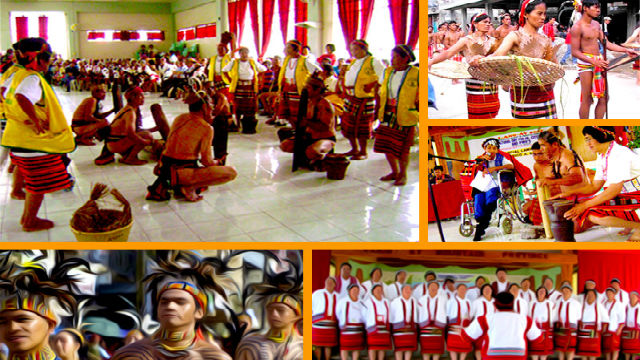BAGUIO CITY – Concerned indigenous peoples (IPs) in the city petitioned the National Commission on Indigenous Peoples (NCIP) central office to recall the certificate of affirmation that it previously issued to the city’s purported Indigenous peoples Mandatory Representative (IPMR, Roger Sinot, due to alleged irregularities in the selection process and the questionable qualifications of the said individual.
In a 4-page urgent petition filed with NCIP Chairperson Leonor T. Oralde-Quitayo, IP leaders of the Ibaloi, Kankana-ey and Kalanguya tribes in the city claimed they were unceremoniously and illegally excluded from the selection process that resulted to the highly questionable selection of Sinot as the city’s IPMR.
The elders also questioned the qualification of Sinot who was a convicted criminal by the Municipal Circuit Trial Court (MCTC) in Kayapa, Nueva Vizcaya for alleged theft and not a registered voter of Baguio city where he sought to seat as the IPMR.
Records show that after they filed the protest with the NCIP-CAR, regional director Ronald Calde acted favorably by instructing Belino A. Cirilo of Itogon, Benguet to facilitate the possible settlement of the issues raised in their protest.
Cirilo subsequently convened the Council of Elders and leaders pursuant to their customary laws of ‘tongtong or tabtaval’ which was chaired by Atty. Moises B. Cating, the prominent and most respected Ibaloi tribe leader in the city.
Based on the customary laws of ‘tabtaval,’ the elders thoroughly investigated the issues and found out that the local guidelines were grossly violated and Sinot was not even qualified to be selected as IPMR and that the said decision was in the exercise of their customary laws which the NCIP is legally bound to uphold and respect.
According to them, the decision of the elders was never questioned by Sinot and that his defining silence with respect to the said decision is an implicit acquiescence pursuant to their customary laws.
When the said issues were brought to the Commission after the inhibition of Calde, the elders argued that they were hopeful that the Commissioners will uphold their decision and order the re-selection of another IPMR, however, they were surprised when they followed up the matter with the NCIP Baguio City service center when they were informed that a certificate of affirmation was already issued by Calde in favor of Sinot.
The elders emphasized based on their perusal of the legal opinion of the NCIP, it mainly delved on the same issues which were already decided by them in the exercise of their customary laws and worst, the legal opinion was issued without considering why the elders came out with a decision to disqualify Sinot and that the opinion dealt on purely legal matter and entirely debunking their customary laws.
The petition stipulated that the Commission is fully aware that the intent of the Indigenous Peoples Rights Act (IPRA is to correct centuries of injustice against the IPs and that the NCIP is the bedrock of upholding their customary laws, traditions and cultures.
Ironically, the elders asserted that the NCIP legal opinion has changed their belief because it entirely reversed their decision and they now wonder if the NCIP respects their customary laws and consider them as primacy in resolving issues.
If decision in the exercise of their customary laws can just be ignored and thrown in the pit like garbage anytime by the Commission, the elders questioned the wisdom on the use of settlement mechanisms provided in the guidelines and it appears that the term “primacy of customary laws” has no more functional meaning and the term is now dead letters in the living law.
“We belies that the decision of the elders cannot just be reversed by way of legal opinion. We were never given the opportunity to explain our side. We were not notified that there was such a legal opinion. Our exclusion in the selection of IPMR and the qualification of Mr. Sinot require in-depth investigation that cannot just be resolved through a mere legal opinion. By its nature, the legal opinion is just the thoughts of the legal office based on its own assessment but cannot be the basis in reversing the decision of the elders in the issuance of the affirmation,” the petition stated.
By HENT












